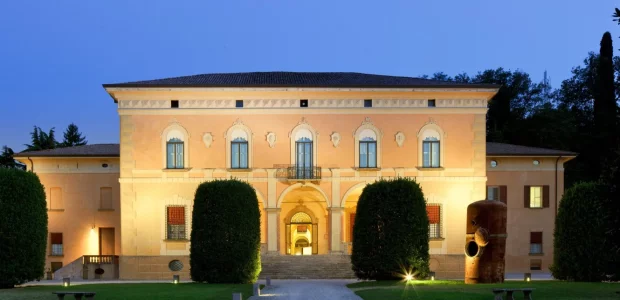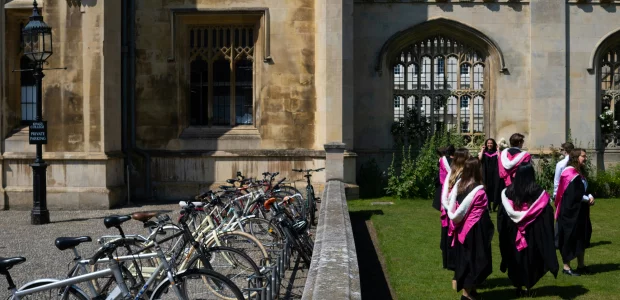
Neither youth nor maturity is a sin or a virtue when it comes to admission to an MBA or an Executive MBA. In any case, either the MBA or the EMBA will satisfy your urge for improving your managerial skill set and career growth. What matters is where you see the highest value for your career project and the best fit of learning environment. This will help you prepare your pitch to the admissions committee for the programme where you feel you truly belong.
Put yourself in the picture
The first step to deciding which programme is right for you is to be aware of the participants’ profile each of these programmes is targeting. EMBA programmes are geared towards professionals with significant work experience – somewhere between 10 and 15 years on average, 5 years being the required minimum. Management experience is often required for EMBA application, and will definitely be viewed as an advantage for MBA candidates, although in this case it is not a must, and the overall professional experience is expected to be a minimum of 2-3 years.
At INSEAD (France), for instance, the average age in the MBA class is 29 (ranging between 23 and 37) with five years of work experience (ranging between two and 10 years). The school describes the typical MBA candidates as young professionals who are at an early stage in their career.
Typically, they are identified as high performing individuals in their specific domain, and are now looking to broaden their perspectives, learn more about general management and make some change in their professional direction, whether the role, industry, work country or all three of these aspects.
In contrast, INSEAD’s Executive MBA programme puts more emphasis on individual leadership development.
This is because the Executive MBA is tailor-made for participants who are at a more advanced stage of their career as compared to MBA students. At INSEAD, Executive MBA participants have at least three years of managerial experience with a total of 13 years of work experience on average, with the average age being 37.
Learn more about EMBA programmes at INSEAD by taking a look at this handy school profile.
IE (Spain) requires its Global EMBA candidates to have at least 10 years of work experience and at least five years of managerial experience. The average age is 39. The EMBA programme of IMD (Switzerland) is designed for individuals aged 35 and up with at least 10 years of professional experience, “strong management experience,” consistent career progression, and leadership potential. The average age of students in the 2017 IMD EMBA class is 40 with 16 years of average professional experience.
The answer to the question of why EMBA and MBA programmes have different requirements for work experience, which consequently affect the age range of the class, lies in the underlying goals of the programmes. The full-time MBA is designed to help participants switch careers or boost their progression to a managerial position, while the EMBA is focused on senior management and business leadership. Not many older students apply because it does not make a lot of sense economically or professionally. Many of the experienced candidates shun the full-time MBA because they cannot afford to leave their jobs to study full time. In addition, many professionals above 35 years of age have families and mortgage payments to take care of. They are therefore put off by the likelihood of being offered less after the programme ends than they earned at their pre-MBA job. And let’s not forget another factor – more experienced students may feel out of line socially, culturally, and even technologically in a class composed of twenty-somethings.
Age alone is not a factor
There are universities that are sceptical of older MBA candidates. One of the reasons why MBA admissions officers have reservations about older candidates is because more experienced professionals may be “too set in their ways,” says Christie St-John, Director of Admissions at Vanderbilt University’s Owen Graduate School of Management (US), cited by Bloomberg. However, there are institutions that consider students above 30 or 40 to be a valuable addition to their MBA classes.
James Roberts, director of the Full-time MBA programme at Leeds University Business School (UK), says that the average age on the MBA programme of the business school is 31-32, and older candidates are welcome – usually there are two or three students over 45 in an average year. The typical cohort size is about 34-40 students. Mr Roberts highlights:
Each student has to bring something the others will benefit from. Having older students brings a richer perspective on the realities of business to discussions amongst the cohort. They have a lot to teach the younger students, particularly in areas of softer skills like leadership and team management. Equally, they can learn from the younger students, particularly in areas like digital marketing.
The director points out that other factors, such as gender, age, nationality, and sector/function background should also be taken into account to ensure a rich range of experience to draw from.
Check out: Executive MBA Requirements and What to Expect
Who is the decision maker?
It is quite possible for candidates to find themselves stuck in a seemingly grey area where they are too old for an MBA and too young for an EMBA. As with many difficult situations in life, they can view this either as a predicament or as an opportunity to choose between a full-time MBA and an EMBA depending on their needs.
The Toronto-based Rotman School of Management believes that the candidates themselves are in the best position to make an informed decision on whether they want to enrol in a full-time MBA programme or an Executive MBA. Jamie Young, director of Rotman’s Full-time MBA says:
If you have more than 10 years of work experience, we do encourage you to consider one of Rotman’s Executive MBA programmes, where you will have the opportunity to learn with a more experienced peer group. Ultimately, we emphasise the ‘fit’ with our programme and the candidates themselves can be a good judge of this if they do their research. However, we don’t think this can be determined based on any one, single dimension. There are students each year who join the full-time programme and have more than 10 years of work experience, so that should signal that we consider candidates from a holistic perspective.
Older candidates willing to pursue an MBA degree should demonstrate to the admissions’ commissions that they know what they are doing. Andra Cioara, coordinator for Europe and Central Asia at the International Development Department of the Madrid-based IE Business School, places a high premium on the student’s personal motivation:
In general, full-time MBAs are advisable for those professionals who wish to change something in their career. Hence, even if they have more experience, they could still pursue the programme as long as they are aware and content with the fact that they will have younger and less experienced colleagues. Generally speaking, professionals and executives with 10+ years of experience would be indeed more suitable for an Executive MBA, but if they feel they want to pursue a full-time MBA, we try to understand their motivation and then recommend the best programme from our portfolio.
Let’s take a look at the other option: you are younger than 35 and want to enrol in an EMBA programme. You can consider this option if you have more than five years of professional experience and preferably some managerial experience and would like to step into a senior management role. In this case, admissions officers will be looking for evidence that you are mature, and have relevant experience and leadership potential. Iliana Bobova, Head of Admissions Consulting at Advent Group, says:
I had a 30-year-old client who got admitted to the Executive MBA programme of London Business School with only six years of professional experience. However, she could look back on a swift career rise, had taken on a managerial role, and had also been endorsed and sponsored by her employer. She managed to convince the admissions committee that she will benefit from the programme, but also be a valuable asset to the EMBA class.
Ultimately business schools focus on experience and motivation, but it is still far more the exception than the rule to be over 35 and enrol in a full-time MBA programme, or to be in your early thirties and join an EMBA programme. However, there are always grounds to break the stereotypes and convince the AdComs about where you truly belong.
This article is original content produced by Advent Group and included in the 2017-2018 annual Access MBA, EMBA, and Masters Guide under the title “The Virtues of Youth and Maturity”. The latest online version of the Guide is available here.


Comments